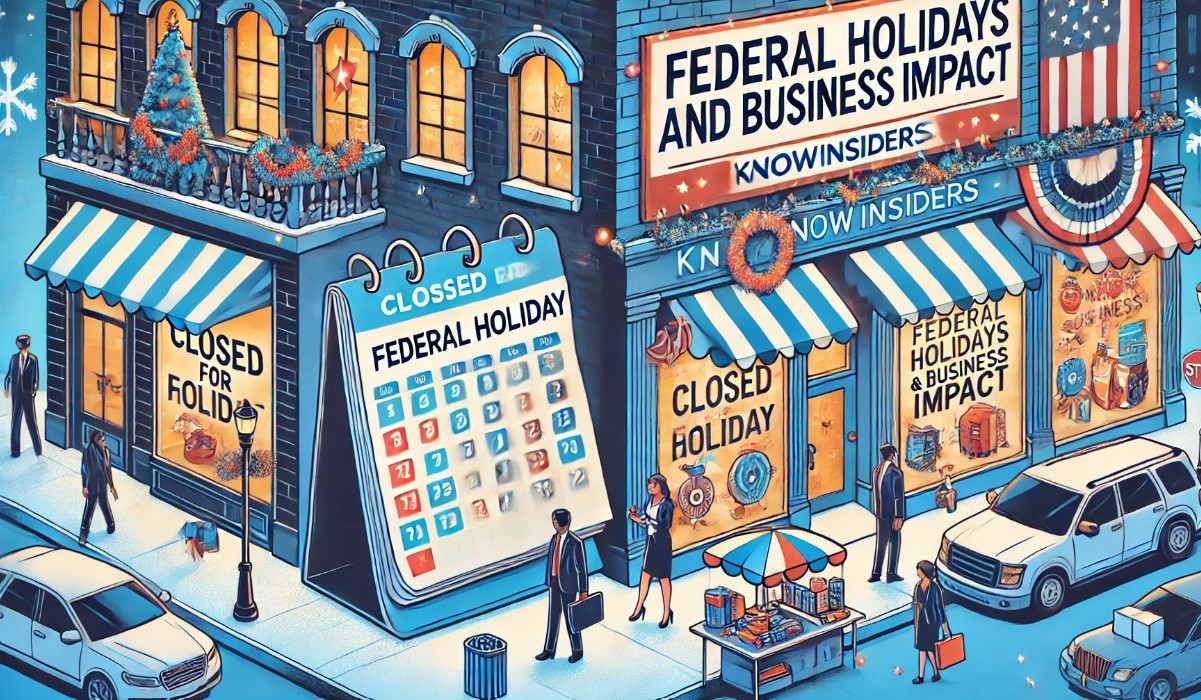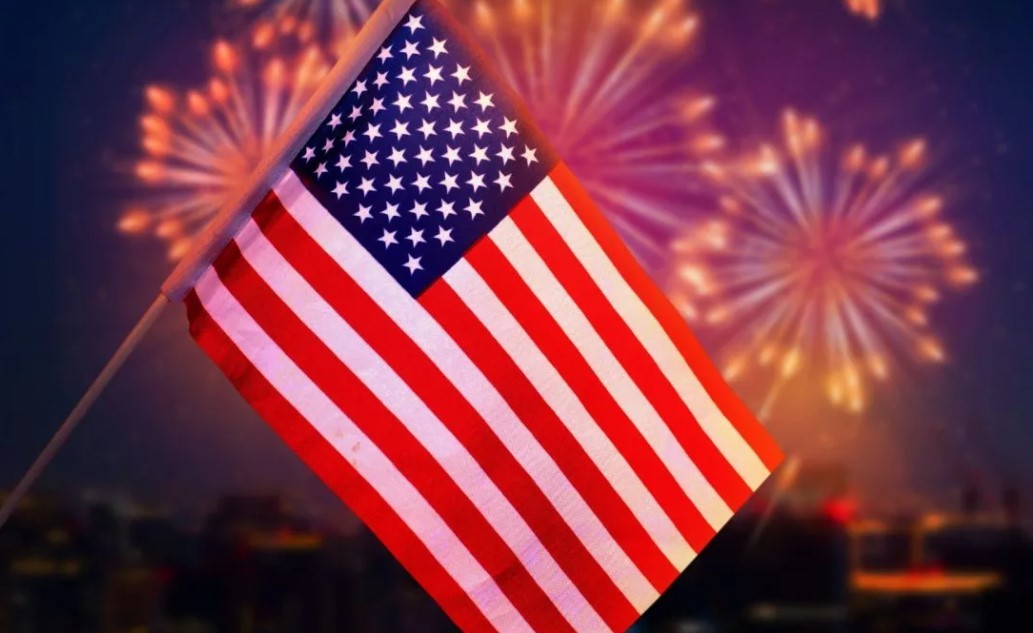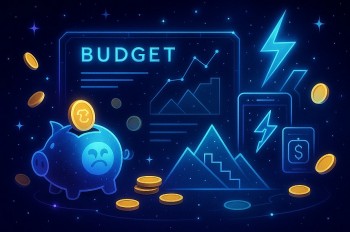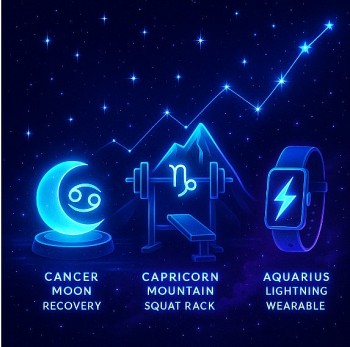Full List of US Holidays: Federal, Traditional and Informal Days
| Table of Contents |
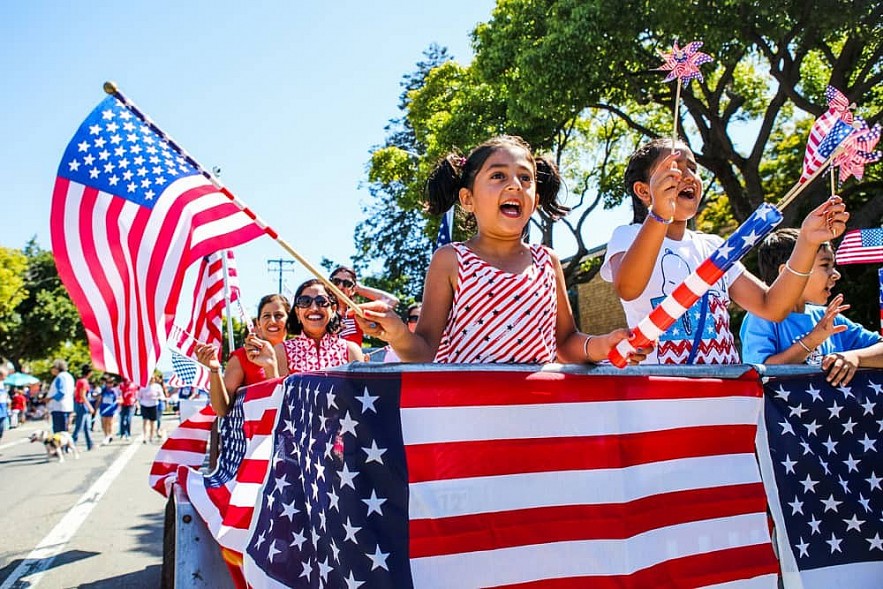 |
| Holidays and National Celebrations in the United States |
12 Federal US Holidays
There are 12 federal holidays in the United States. Find out about the U.S.'s national, state, and cultural holidays.
On federal holidays every year, many government offices and some private businesses are closed. The government might celebrate the holiday on a different day if it falls on the weekend.
People in the United States remember those who died while serving in the military on Memorial Day. Veterans Day is a time to honor all people who have served in the military.
1. New Year's Day (January 1)
2. Birthday of Martin Luther King, Jr. (Third Monday in January)
3. Inauguration Day (January 20, every 4 years following a presidential election)
4. Washington's Birthday (Also known as Presidents Day; third Monday in February)
5. Memorial Day (Last Monday in May)
6. Juneteenth National Independence Day (June 19)
7. Independence Day (July 4)
8. Labor Day (First Monday in September)
9. Columbus Day (Second Monday in October)
10. Veterans Day (November 11)
11. Thanksgiving Day (Fourth Thursday in November)
12. Christmas Day (December 25)
10 Most Celebrated Holidays in the US
The Non-Federal US Holidays
• Groundhog Day February 2
• Valentine’s Day February 14
• St. Patrick’s Day March 17
• April Fool’s Day April 1
• Good Friday March 29
• Easter Sunday March 31
• Easter Monday April 1
• Earth Day April 22
• Mother’s Day May 12
• Father’s Day June 16
• Halloween October 31
• Hanukkah Starts at sundown on December 25
• Kwanzaa December 26 to January 1
Learn more: US Calendar for All 12 Months: Full List of Holidays and Celebrations
US Holidays with Cultural or Historical Meaning
The melting pot of civilizations that is America is the source of its unique culture. It is primarily shaped by European and Western influences. The indigenous people of the area also contributed cultural aspects to these influences. Afterwards, other African, Asian, and Latin American cultural values were incorporated as a result of massive migration waves.
American culture is both formed and evolved through the precise process of fusing cultural aspects of various origins. The building of a genuine culture that could produce its own traits was made possible by the passage of time. Many forms of expression, including but not limited to dialect, art, social habits, and folklore, serve to convey these.
The holidays serve as a prime illustration of the development of American culture. In honoring pivotal moments in our nation's past, they serve as symbols of national pride and identity. However, there are other occasions when celebrations serve to honor and remember individuals who played pivotal roles in the nation's founding. That is why the celebrations are seen as a reflection of the culture of the nation.
Independence Day, or the Fourth of July, is a national holiday in the US that has historical and cultural importance. As a national celebration honoring the signing of a declaration of independence from Great Britain in 1776, this day is very significant to Americans.
Celebrations including fireworks shows, parades, barbecues, and other events bring people together to pay tribute to their country on this day. This is a time for communities and families to come together in honor of the founding fathers and the ideals upon which our nation was built. In celebrating our nation's independence, we honor the timeless principles that have always been important to who we are as a people.
1. New Year’s Day (January 1)
Cultural Meaning: Marks the beginning of the calendar year.
Traditions: Celebrations often include fireworks, parties, and making resolutions for the new year.
2. Martin Luther King Jr. Day (Third Monday in January)
Historical Meaning: Honors Dr. Martin Luther King Jr., a civil rights leader who advocated for nonviolent activism against racial segregation.
Traditions: Parades, community service, and educational events focused on civil rights and social justice.
3. Presidents’ Day (Third Monday in February)
Historical Meaning: Originally established to honor George Washington’s birthday, it now celebrates all U.S. presidents.
Traditions: Sales and promotions by retailers, and educational activities about U.S. history and presidents.
4. Independence Day
 |
| Happy Independence Day America! Quotes and Greeting Messages |
Declaration of Independence, July 4, 1776. Two days after a vote on splitting from the UK, the Continental Congress approved this. Thus, celebrations represent a nation's culture.
America's birth certificate, the Declaration of Independence by Thomas Jefferson, declares independence from Britain.
US independence celebrations haven't changed much. America consumes massive amounts of fireworks for this holiday. According to the American Pyrotechnics Association, fireworks imports exceeded 250 million pounds in 2019.
This date is celebrated differently in each region. He is honored with barbecues, picnics, festivals, baseball, parades, and nationwide events. People run the world's longest 10K, the AJC Peachtree Road Race, in Atlanta to fit in all that food. The Nathan's Hot Dog Eating Contest in Coney Island is almost a holiday.
Learn more: USA Independence Day (July 4): Timeline, Q & A and Facts
5. Memorial Day (Last Monday in May)
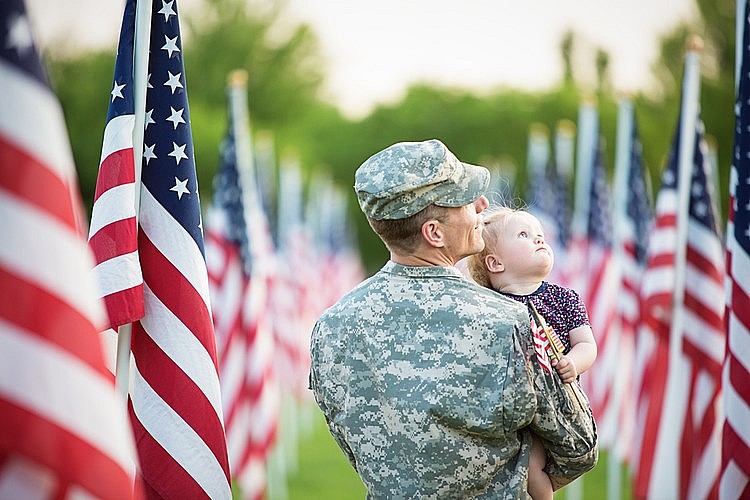 |
| Memorial Day in the United States |
Historical Meaning: Honors military personnel who have died in service to the United States.
Traditions: Parades, visiting cemeteries and memorials, and family gatherings.
In the United States, Memorial Day ranks high among the most significant holidays. The purpose of this annual celebration, which takes place on May 31st, is to remember and pay tribute to the brave men and women who gave their lives protecting our nation. Veterans of all wars, from the American Revolution in 1776 to the conflicts in Afghanistan and the Middle East, are honored on this national holiday in cities across the United States.
From its origins in the American Revolution, this commemorative date has evolved into its modern form.
6. Labor Day (First Monday in September)
Historical Meaning: Recognizes the contributions of American workers and the labor movement.
Traditions: Parades, picnics, and marking the unofficial end of summer.
7. Columbus Day (Second Monday in October)
Historical Meaning: Commemorates Christopher Columbus’s landing in the Americas on October 12, 1492.
Traditions: Parades and celebrations in Italian-American communities; controversy and debate about its impact on indigenous peoples.
8. Veterans Day (November 11)
Historical Meaning: Honors military veterans who have served in the U.S. Armed Forces.
Traditions: Parades, ceremonies, and educational activities.
9. Thanksgiving Day (Fourth Thursday in November)
Historical Meaning: Originates from a 1621 feast shared by Pilgrims and Native Americans.
Traditions: Family gatherings, feasting (particularly on turkey), and expressing gratitude.
Thanksgiving is a major American holiday. It's celebrated annually on the fourth Thursday of November to thank goodness for health, work, well-being, and love.
The famous turkey meal is still served on this day. This day is also celebrated with American football games and the Macy's Thanksgiving Day Parade in New York.
This celebration's essence has endured despite its changes. It remains a chance to appreciate life's blessings. It's also a good time to visit family and friends and start Christmas preparations.
10. Christmas Day (December 25)
Cultural Meaning: Celebrates the birth of Jesus Christ in Christian tradition.
Traditions: Gift-giving, decorating Christmas trees, and festive meals
11. Juneteenth (June 19)
Historical Meaning: Commemorates the emancipation of enslaved African Americans in 1865.
Traditions: Celebrations include parades, cultural events, and educational activities.
12. Halloween (October 31)
Cultural Meaning: Originates from ancient Celtic festivals and Christian traditions.
Traditions: Trick-or-treating, costume parties, and carving pumpkins.
13. Easter (Date varies, usually in April)
Religious Meaning: Celebrates the resurrection of Jesus Christ.
Traditions: Church services, egg hunts, and festive meals.
14. Hanukkah (Date varies, usually in December)
Religious Meaning: Jewish festival commemorating the rededication of the Second Temple in Jerusalem.
Traditions: Lighting the menorah, playing dreidel, and eating foods like latkes and sufganiyot.
15. Kwanzaa (December 26 to January 1)
Cultural Significance: Celebrates African-American culture and heritage.
Traditions: Lighting the kinara, discussing the seven principles (Nguzo Saba), and cultural performances.
Traditional and Informal Holidays in the US
The United States is home to many different customs and festivities from around the world, both formal and informal. Whether they are formal or informal, these holidays add to the rich fabric of American culture and offer chances for joy, introspection, and social interaction.
Thanksgiving is one of the most well-known and popular holidays in the US, when families get together to share a hearty meal and express gratitude. This celebration has deep historical roots that go all the way back to the Pilgrims' first harvest feast shared with the Native Americans.
Christmas, which falls on December 25th, is another customary holiday where people get together to celebrate the birth of Jesus Christ, exchange gifts, and adorn their homes.
Learn more: Top 15 Weirdest US Traditions That Confuse The World
Traditional Holidays
1. Groundhog Day (February 2)
Meaning: Predicts the weather for the remainder of winter based on whether a groundhog sees its shadow.
Traditions: Observances in Punxsutawney, Pennsylvania, with Punxsutawney Phil, the famous groundhog.
2. Valentine’s Day (February 14)
Meaning: Celebrates love and affection between intimate partners.
Traditions: Exchanging cards, flowers, chocolates, and romantic dinners.
3. St. Patrick’s Day (March 17)
Meaning: Honors St. Patrick, the patron saint of Ireland.
Traditions: Wearing green, parades, and celebrating Irish culture with food and drink.
4. April Fool’s Day (April 1)
Meaning: A day for playing pranks and practical jokes.
Traditions: Pranks range from simple jokes to elaborate hoaxes.
5. Easter (Date varies, usually in April)
Religious Meaning: Celebrates the resurrection of Jesus Christ in Christian tradition.
Traditions: Church services, egg hunts, and festive meals with family.
6. Mother’s Day (Second Sunday in May)
Meaning: Honors mothers and motherhood.
Traditions: Giving gifts, cards, and spending time with mothers.
7. Father’s Day (Third Sunday in June)
Meaning: Honors fathers and fatherhood.
Traditions: Giving gifts, cards, and spending time with fathers.
8. Halloween (October 31)
Meaning: Originates from ancient Celtic festivals and Christian traditions.
Traditions: Trick-or-treating, costume parties, and carving pumpkins.
Informal Holidays
Super Bowl Sunday (First Sunday in February)
Meaning: The championship game of the National Football League (NFL).
Traditions: Watching the game, Super Bowl parties, and commercials.
Mardi Gras (Date varies, usually in February or March)
Meaning: Marks the last day before Lent in Christian tradition.
Traditions: Parades, masquerade balls, and festivities, particularly in New Orleans.
Pi Day (March 14)
Meaning: Celebrates the mathematical constant π (pi).
Traditions: Eating pie and engaging in math-related activities.
Earth Day (April 22)
Meaning: Promotes environmental awareness and protection.
Traditions: Planting trees, clean-up activities, and educational events.
ECinco de Mayo (May 5)
Meaning: Commemorates the Mexican victory over the French at the Battle of Puebla.
Traditions: Celebrations of Mexican culture with food, music, and dancing, particularly popular in the U.S.
Flag Day (June 14)
Meaning: Commemorates the adoption of the U.S. flag in 1777.
Traditions: Displaying the flag and patriotic activities.
National Ice Cream Day (Third Sunday in July)
Meaning: Celebrates the enjoyment of ice cream.
Traditions: Eating ice cream and special promotions by ice cream shops.
Grandparents Day (First Sunday after Labor Day in September)
Meaning: Honors grandparents.
Traditions: Spending time with grandparents and giving them special attention.
National Dog Day (August 26)
Meaning: Celebrates dogs and encourages adoption.
Traditions: Spoiling dogs with treats and attention, and raising awareness for dog adoption.
Black Friday (Day after Thanksgiving)
Meaning: Marks the beginning of the Christmas shopping season.
Traditions: Shopping, sales, and special promotions.
Legal Holidays (Presidential Proclamation) in the US
The President of the United States may establish presidential proclamations designating particular days of observance. Temporary "legal holidays" that may not be yearly but are noteworthy for a variety of reasons can be established by these proclamations.
Unless they are followed by congressional legislation, these proclamations usually do not create permanent federal holidays, even though they can create temporary or recurring observances. They reflect the priorities and values of the American people at different points in time, and they play a vital role in the cultural and civic life of the country.
National Days of Mourning
Description: Typically declared following the death of a significant national figure, such as a former president.
Traditions: Flags flown at half-staff, moments of silence, and memorial services.
Days of National Observance
Description: These days recognize significant historical events, achievements, or public service.
Traditions: Public ceremonies, educational events, and government acknowledgments.
National Volunteer Week
Description: Encourages volunteerism and acknowledges the contributions of volunteers.
Traditions: Volunteer events, recognition ceremonies, and community service projects.
Date: Typically observed in April.
National Hispanic Heritage Month
Description: Celebrates the histories, cultures, and contributions of Hispanic and Latino Americans.
Traditions: Cultural festivals, educational programs, and community events.
Date: September 15 to October 15.
National Women’s History Month
Description: Recognizes the contributions of women to American history and society.
Traditions: Educational programs, events highlighting women’s achievements, and public recognition.
Date: March.
National African American History Month
Description: Celebrates the achievements and contributions of African Americans.
Traditions: Cultural events, educational programs, and public acknowledgments.
Date: February.
Native American Traditions
Native American culture is alive and well in the United States, and some traditions have been around for hundreds of years. Not only is it important for Native American communities to keep these traditions alive, but it's also important for everyone to understand and appreciate America's rich history. The main Native American traditions are about to be talked about.
Learn more: 10 Largest Tribal Groups In The US Today By Population
Powwows
Powwows are social events that honor Native American culture via dance, music, and camaraderie. These events, which can span one or more days, are essential for fostering a sense of community and cultural expression.
Attendees frequently don ornate regalia that is made with traditional materials and designs, honoring the distinct cultural heritage of their individual tribes. Powwows offer a venue for the passing down of cultural knowledge to younger generations, in addition to featuring competitive drumming and dancing competitions.
Storytelling
Native American language and culture are fundamentally based on storytelling, which is used for amusement, education, and cultural preservation. History, moral lessons, and practical knowledge are transmitted orally.
Tales convey profound spiritual meanings and cultural values and frequently include animals, the natural world, and mythological characters. Though every tribe has its own story, creation myths, trickster tales, and explanations of natural phenomena are common themes.
Specific Tribal Rituals
Navajo Blessingway Ceremony
Good fortune, health, and harmony are the goals of this sacred ritual, which is performed by members of the Navajo faith. It is believed that the healing spirits can be attracted through the creation of sand paintings, prayers, and singing.
Hopi Snake Dance
A Hopi woman prays for rain and fertility as she performs this rite. The ritual involves dancing while holding live snakes in one's mouth; these serpents are then released to convey the participants' prayers to the gods.
I highly suggest the Heard Hopi museum in Phoenix if you happen to be in the area.
Lakota Sun Dance
Among the Lakota Sioux's most important religious rituals is the Sun Dance. Days of fasting, dancing, and frequently self-sacrifice are all part of this rite of renewal. Participants look for spiritual visions, and the community unites in a powerful demonstration of fortitude and faith.
Learn more: Who Are The Native Americans: Culture, Traditions and Religions
Sporting Traditions
In American culture, sports hold a significance that rivals even the importance of food. Now, picture the possibilities of merging both! Continue reading to discover more about the sports that America loves the most.
Baseball
Baseball, known as "America's pastime," is important to American culture. Since the 19th century, it has symbolized American identity and tradition.
Baseball reflects cultural, economic, and political changes in America. It broke racial barriers, especially when Jackie Robinson integrated MLB in 1947.
The New York Yankees, Boston Red Sox, and Chicago Cubs are MLB teams with rich histories and passionate fans.
Baseball games bring families together and foster community. The slow pace of the game (European perspective) encourages socializing and fun.
Baseball's cultural significance is enhanced by rituals like the national anthem and "Take Me Out to the Ball Game" during the seventh-inning stretch and the ceremonial first pitch.
American football
The National Football League (NFL) has a huge fan base, making American football possibly the most popular sport in the country. The physicality, intricacy of the strategy, and spectacle of the games—particularly the Super Bowl—are what define this sport.
Sunday football games in particular have become ingrained in American culture. The NFL championship game, known as the Super Bowl, is the most watched television event in the United States because it's a big show that combines entertainment and sports.
Football on Thanksgiving, tailgating prior to games, and the Super Bowl halftime show are all highly anticipated and popular US customs.
Basketball
Because of its quick tempo and urban appeal, basketball has become a popular sport in the United States, largely due to the impact of the National Basketball Association (NBA). Sports legends like Kobe Bryant, LeBron James, and Michael Jordan have contributed to the sport's increased global awareness.
In cities, basketball is especially important because it has shaped popular culture, which includes music, fashion, and way of life.
Many children participate in the sport in parks, community centers, and schools, demonstrating its accessibility and popularity among young people. For young athletes, especially those from disadvantaged backgrounds, it is a vital source of opportunity.
College Sports
College sports shape American culture beyond the athletic programs. This is distinct from Europe and deeply ingrained in North American culture!
Student, alumni, and community pride often comes from college sports teams. College football games and basketball tournaments draw large crowds and foster community.
These events can boost their institutions' and communities' economies. Revenue from ticket sales, merchandise, and media rights funds other athletic and academic programs.
College sports allow student-athletes to develop skills and potentially become professionals. Many students who cannot afford college benefit from scholarships and athletic programs.
The games have many traditions, from fight songs and mascots (sometimes living animals like the Texas Longhorns' Beevo) to national rivalries like the Michigan-Ohio State football game or the Duke-North Carolina basketball game.
Uniquely American Traditions
The holidays of Thanksgiving, Halloween, the Fourth of July, Juneteenth, and the Super Bowl have already been mentioned, but the United States of America is home to a great number of other traditions as well.
Memorial Day
Memorial Day, which is commemorated on the final Monday in May, pays tribute to the men and women who have lost their lives while serving their country.
After the Civil War, it was first observed as Decoration Day to honor both Union and Confederate soldiers who had lost their lives in battle. In 1971, Memorial Day was formally declared.
On this day, people visit cemeteries and memorials and, frequently, lay American flags on the graves of fallen soldiers. Many towns have parades with veterans and active military personnel in them. In addition, it's the unofficial start of summer, which is celebrated with outdoor activities, barbecues, and get-togethers with family.
Veterans Day
Veterans Day, a military holiday celebrated on November 11th, is another custom honoring those who have served in the armed forces of the United States.
In honor of veterans of all conflicts, Veterans Day was renamed in 1954 from its original name, Armistice Day, which marked the end of World War I.
Parades, ceremonies, and the placing of wreaths at monuments and memorials are all part of the celebrations. Events are frequently held by communities and schools to honor and thank veterans for their service. To honor those who have served, the day is observed with moments of silence and patriotic displays.
Martin Luther King Jr. Day
Celebrated on the third Monday in January, Martin Luther King Jr. Day pays tribute to the civil rights activist Dr.
The day, which was first observed in 1986 and designated as a federal holiday in 1983, honors Dr. King for his contributions to the civil rights movement as well as his support of nonviolent resistance.
Educative initiatives, symposiums, and memorial services are frequently held on this day to honor Dr. King's legacy and the ongoing fight for racial equality. King's dedication to social justice and community development is reflected in the large number of people who take part in community service projects.
Black Friday
U.S. Christmas shopping begins on Black Friday, the day after Thanksgiving.
Philadelphia coined "Black Friday" in the 1960s to describe the day after Thanksgiving's heavy pedestrian and vehicular traffic. It has grown into a global retail event in recent years.
Massive sales and promotions draw crowds to stores. Many people shop early in the morning or on Thanksgiving night. The day now includes online shopping deals, and the weekend, including Cyber Monday, is crucial for retail sales.
FAQs
Is the post office closed on federal holidays?
The post office has a unique schedule compared to most businesses regarding federal holidays. Being aware of these holidays is essential for planning your postal needs effectively. On these specific federal holidays, the post office is generally closed, resulting in no mail delivery or pickup services.
Checking the specific holiday schedule is recommended to stay informed about any changes in postal services during these periods. Being aware of these closures allows you to manage your mailing needs effectively and prevent any potential delays in sending or receiving important documents or packages.
When did Juneteenth become a federal holiday?
 |
| Juneteenth |
On June 17, 2021, Juneteenth became a federal holiday in the United States, a momentous and long-awaited event. This significant turning point signaled the acknowledgment of Juneteenth's historical importance and its significance in honoring the emancipation of African Americans from slavery.
With a resounding majority in the House of Representatives and unanimous support in the Senate, the bill designating Juneteenth as a federal holiday was overwhelmingly supported by both political parties. This historic choice reminds us of the continuous fight for justice and equality for all people and cemented Juneteenth's place in American history.
Is Inauguration Day a Federal Holiday?
As the swearing-in of a new president, Inauguration Day is important in American politics. An interesting distinction exists regarding its federal holiday status. While not a federal holiday, Inauguration Day is significant and celebrated in many ways.
Federal employees in Washington, D.C., get a day off to watch the inauguration, and some state and local governments offer time off or flexible work schedules.
Schools and businesses may close or modify operations to accommodate inauguration attendees. Thus, Inauguration Day is unique in American culture and governance despite not being a federal holiday.
Is it a holiday in the US when a president dies?
In the United States, the death of a president is a serious and momentous occasion. It's a time when the country comes together to honor and grieve for its leader. A day of national mourning and remembrance is typically observed following the death of a president, even though it is not officially recognized as a holiday.
Flags flown at half mast, government offices closed, and special memorial services conducted across the country are a few examples of this. As Americans remember and celebrate the life of their fallen leader, it is a moment for introspection and solidarity.
Do employees get holiday pay in the US?
People in the United States talk a lot about holiday pay. Many workers aren't sure if they should get extra pay for working on holidays or if they will just get their regular pay. The answer to this question depends on a number of things, including company rules, employment contracts, and federal or state laws.
As an incentive for workers to show up for work on holidays, some companies may give extra pay, also known as holiday pay. It's important to remember, though, that there is no federal law that says employees have to get extra pay for working on holidays unless they work longer hours than usual.
What is overtime work on a holiday?
Many workers must decide whether to work overtime on holidays. Holiday overtime can earn higher pay or bonuses. It also means missing out on family time and holiday traditions. Personal circumstances, priorities, and work-life balance determine whether to work overtime on holidays.
Overtime work can provide financial benefits and career advancement, but others prefer to relax during this special time. Work overtime on holidays should be carefully considered based on the individual's values and priorities.
Is night work allowed on a holiday?
Night work is a major issue during holidays. While many people enjoy their vacation, some industries must operate 24/7, even on holidays. Emergency services, healthcare, transportation, and some manufacturing are included.
Holiday night workers are vital to community safety. Since they miss out on festivities and family time, their sacrifice deserves recognition. It is important to recognize these individuals' efforts and find ways to support them during these difficult times so they can still enjoy the holidays in their own way.
In Conclusion
Holidays in the United States reflect the nation's culture. Each of these dates signifies a pivotal moment in American history. In this regard, every American perceives a connection to their history, honoring significant dates through established traditions. Moreover, holidays serve as an effective means of imparting knowledge about history and culture.
Throughout these dates, all individuals engage in the acquisition of knowledge and the commemoration of ancient traditions integral to the nation's culture. These occur as Americans, through the experience of cultural transformations and the establishment of novel methods to commemorate these dates, become observers of what will evolve into a tradition and emblem of American culture in the future.
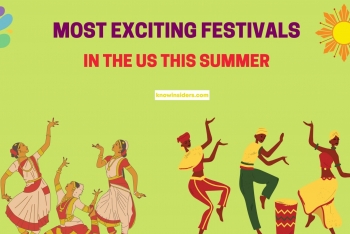 7 Most Exciting Summer Festivals In The US 7 Most Exciting Summer Festivals In The US Summer is around the corner. Every time summer comes, it reminds us of the beginning of festival season. This summer, if you are lucky to ... |
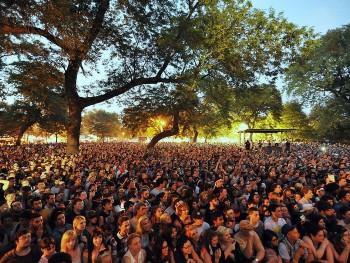 Top 11 Most Exciting Music Festivals In The US Top 11 Most Exciting Music Festivals In The US Music festival is surely the adventure of a life time. US is one of the countries with the most exciting music festivals. Check out which ... |
 Top 10 Most Popular Summer Cultural Festivals In The US Top 10 Most Popular Summer Cultural Festivals In The US Summer is coming and cultural festivals are waiting for you to explore with lots of fun and energy. From movie, music to art festivals, check ... |
 Top 10 Most Exciting Food Festivals In The US Top 10 Most Exciting Food Festivals In The US If you are a fan of food, you should not miss these food festivals with a variety of choices for your favorite dishes and other ... |
 Top 6 Most Popular Festivals In The US: Music, Food, Film and More Top 6 Most Popular Festivals In The US: Music, Food, Film and More In the United States, festivals are among the most enjoyable things to do. Check out our article to learn about the most well-known festivals in ... |

